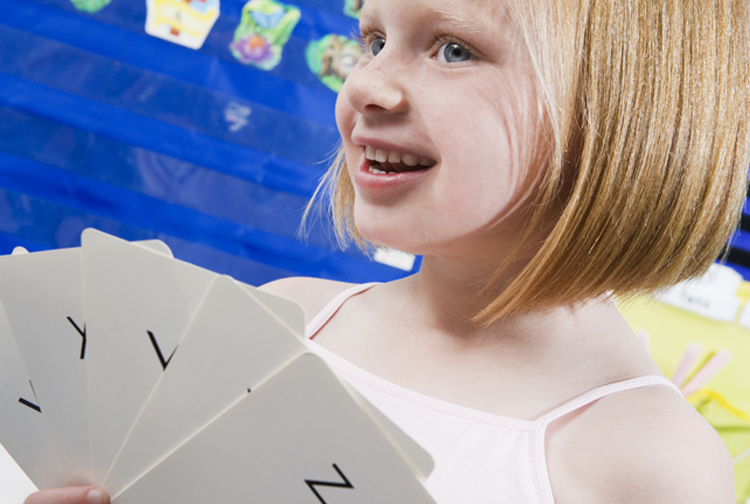When it comes to homeschooling, building social skills are a big deal. Parents who are thinking about homeschooling often worry that their kids won’t have enough opportunities to socialize. But, as any homeschooling parent will tell you, there are numerous ways to socialize your kids, not just with their peers, but with people of all ages.
Read on for a list of 20 ways to socialize homeschoolers. We’ll also talk about the differences between homeschool and public school socialization, as well address the question of whether homeschooling negatively impacts a child’s ability to interact with others.
20 Ways to Socialize Your Homeschooler
Because of the structure of traditional classroom schooling, children who attend public and private schools are naturally around lots of other kids and teachers every day.
When homeschooling, there are just as many opportunities for your child to interact with other kids and adults outside your immediate family. You just have to be more intentional about finding ways to socialize your homeschooler.
With that in mind, let’s explore a few of the ways you can help your student build social skills, make friends, develop other relationships, and interact with people.
Join a Co-op
A homeschool cooperation, or co-op, is an association of homeschool families within a specific geographical area. It’s a way to meet other homeschoolers in your area, as well as find helpful activities and resources.
Homeschool co-ops may offer group classes, field trips, and regular get-togethers. They provide a great medium for your children to make friends with other homeschoolers and for you to connect with other local homeschooling parents.
Co-ops can be a nice way to replicate some of the positive aspects of public schooling while maintaining all the advantages of homeschooling.
To find a co-op in your area, simply do a search for homeschool co-ops in your city or state. You may be surprised by the results that pop up! Some co-ops may even have international roots and can facilitate travel or exchange programs (though the latter are much rarer).
Explore Community Events
Check out what’s happening in your community. Family classes, sporting events, performances, farmer’s markets, and even city hall meetings often provide a great environment for kids to have some fun and explore their interests in public environments.
Community events are also a great way to meet other homeschoolers who may be attending for the same reasons as you−to help their kids become comfortable interacting with other people, learn and experience what is happening in the community, and looking to make new friends.
Get Involved in Church Activities
If your family is religious, then your church most likely provides an endless variety of ways for your kids to socialize. Sunday school, Bible school, children’s choirs, youth groups, Vacation Bible School, church day/week camps, and other church activities provide great opportunities for your children to make friends and learn social skills.
In addition, if your church offers volunteer or mission trip opportunities, these can be fantastic ways for your children to learn about the world and interact with people who are different from themselves.
Make Use of Library Resources
Chances are, your local library has much more to offer than just shelves full of books. Many libraries offer children’s story time, craft activities, and classes on all sorts of different topics. Some may even host movie nights and get-togethers for the various age groups.
Libraries can also be a great place to find out about what’s going on in the community. Check back with your library’s website or bulletin board regularly to see what they’ve got going on.
Join a Club
Clubs aren’t just for public school kids. Your child may have any number of interests, but whatever floats their boat, chances are good that you’ll be able to find a club around that topic. Does your child play an instrument? Get them involved with a music club. Do they enjoy cooking or baking? Find a cooking club. Do they love to read? Check out local book clubs.
If you can’t find a club for your child’s specific interest, why not start one yourself? You might find lots of other homeschoolers with the same interest through your local co-op.
Of course, larger associations such as the Scouts, 4-H, and YMCA are also great options. Just do a quick search for clubs in your area and see what you can find!
Get Involved in Sports
In most areas, it’s easy to find sports teams and associations that your child could join. From flag football and peewee leagues to co-ed soccer to competitive softball and swimming, the possibilities are nearly endless.
In fact, in some cities, there are high school level sports associations where teams of homeschoolers compete against private school teams in the area. Again, these associations, as well as community leagues, can be found by performing a quick internet search.
If your child is athletic and energetic but not inclined toward a particular sport, you might want to check out the local ice rink, roller rink, gymnasium, mini-golf, or trampoline park. These all provide a great place for your kid to have fun and burn excess energy, while also giving them a chance to meet new people and get involved in activities.
Take Art or Music Classes
If your child is into painting, sculpting, or playing an instrument, you may be able to enroll them in a group art or music class. Some of these are offered publicly in your community, while others will be more private with smaller class sizes and individual instruction.
Exploring the arts with a group is a great opportunity for kids to get outside their comfort zones, sharing their work with teachers and classmates, or performing for an audience. These invaluable experiences will encourage them to develop social skills that will greatly help them throughout their lives.
Get Involved with Community Theatre
Let’s face it: what kid doesn’t have a flare for the dramatic at times?
If your child seems to enjoy playing dress up, quoting their favorite movies, and being the center of attention, you may just have a budding star on your hands. Why not give them an outlet for those interests by getting involved with the local community theatre?
Many local theatres put on several children’s plays and musicals each year, while others look for performers of all ages. They may also offer drama camps and classes, music lessons, and other events your children can get involved in.
Get to Know Your Neighbors
Are there lots of children in your neighborhood? Perhaps there are elderly citizens or people who live alone who are lonely for friendship.
Reach out to your neighbors from time to time–talk to them over the fence, invite them over for dinner, invite their kids over to play. After all, the people who live close to you are often the easiest to socialize with simply because you don’t have to go very far to meet with them.
Connect with Other Homeschoolers
Most of the things we’ve listed so far–co-ops, community events, sports leagues–will give you various opportunities to meet other homeschoolers. But why not be more intentional about it?
Talk with other homeschool parents in social media groups and online forums. Arrange play dates with their kids. Organize multi-family get-togethers at the park or skating rink. Talk to strangers at the used curriculum sales. Make friends every chance you get.
Not only can other homeschool families provide great social interactions for you and your kids, but parents may also be able to share resources and encourage each other. After all, you are in the same situation. You may find that you understand each other’s’ struggles better than you ever thought possible.
Organize Homeschool Field Trips
And once you’ve made tons of connections with other homeschoolers, you can all take field trips together! Many homeschool co-ops organize regular field trips for their members, but if you don’t belong to a co-op or yours doesn’t do field trips, it’s easy to plan your own.
A great way to start is by looking into local museums, science centers, zoos, farms, and parks. Many of them may offer group or student discounts. Other potential field trip locations, especially for smaller groups, may include local news stations, parents’ workplaces, and even state or national parks. If you have a 4th grader, you can go to www.everykidoutdoors.gov and get a free national park pass for your child.
Get Involved in Volunteering
Check out what volunteer opportunities are available through your church or in your community. You and your kids might be able to help out at Lunch Partners, a local clothing giveaway, a homeless shelter, or a farm. Volunteering will help children develop solid work ethics and social skills as they learn to help those in need.
Alternately, if your kid is into gardening, crafting, or art, you could have them get some work experience at a farmer’s market or a craft fair. Not only will they have a chance to earn a little money, but they will learn how to talk to strangers in a safe environment.
Send Your Kids to Summer Camp
Whether your child plays sports, enjoys camping and hiking, wants to learn a new instrument or simply wants to spend more time with peers, there are summer camps that will cater to their specific needs and interests.
Summer camp offers an excellent opportunity for your kids to make new friends, learn new skills or improve on existing ones, try new things, and have boatloads of fun. Plus, if they choose to maintain the friendships they made at camp, they will be learning the important life skill of how to keep long distance relationships alive.
Check Out Your Local Community Center
The community center can be a hotspot for finding new volunteer opportunities, classes, events, and activities that your child may be interested in. Check back with the center regularly, as new events and activities will constantly be posted.
Explore Public School Extracurricular Activities
Did you know that in many areas, the extracurricular activities offered at public schools are also open to homeschoolers? Check out your local schools and see what kinds of activities they offer. You may find everything from dance clubs and drama teams to foreign language clubs and gaming groups that would love to have your child join the fun.
Go to the Park
This one may be so obvious that you didn’t think of it immediately. Chances are, you live within walking or short driving distance of a neighborhood park.
If you have younger children, they’re sure to enjoy playing with other kids and burning off extra energy running around the playground. If your kids are older, they may still have fun riding bikes or running around the walking path, exploring nature, or having a picnic lunch with friends.
Plus, at the park, your kids will be getting fresh air and sunshine, which we all need after a long day of working and studying.
Get Together with Family
As homeschool students, your kids will probably spend more time with their family than anyone else. But it’s important that they build connections with extended relatives as well as the immediate family members they share a home with.
Schedule time for your kids to get together and play with their cousins. Visit grandparents, aunts and uncles, and other extended family members, and try to do it more often than just on the holidays. If some family members live in another city or state, try and plan vacations to go and visit them now and then.
Sometimes, being able to get along with family members is one of the most important skills a child can learn, as family members are for life.
Head to a Nature Center
If your kids enjoy the great outdoors, going for walks, and exploring wildlife, then heading to your local nature center may be the perfect after-school activity. You can choose to go as part of a homeschool field trip or just take your kids, as there will be ample opportunities for them to meet and interact with other people at the center.
Some nature centers may offer educational hikes, camping opportunities, and holiday-themed activities geared toward children. You kids will get to learn and make friends in a fun and safe environment.
Join Child-Safe Online Groups
If your kid enjoys being online (and let’s be honest: what kid doesn’t?), you might be able to find some child-specific forums, gaming groups, and social platforms where they can chat with friends and make new friends. Some groups may be offered by your co-op, while others may be more open to the public.
Getting involved with online groups will help your child learn about online social skills, which even many adults are still lacking today. Teaching them the benefits and limitations of online communication, as well as the importance of being polite, will help them communicate effectively throughout their life.
Try Pets or Pen Pals
If your child often appears lonely but doesn’t enjoy large group activities, one thing that might help is to get them a pet. Animals can be incredibly therapeutic. Shy children may be much more likely to develop a bond with their pet first, later learning to communicate and make friends with people because they had an animal to bridge the gap for them.
Another idea is to encourage children to write letters to friends or relatives. Letter writing is a bit of a lost art, so they will be learning a unique skill in today’s world as well as learning how to express themselves in writing.
Plus, both pets and pen pals will give your child a way to communicate and interact with others whenever they feel like it, even if they have no other activities or social events going on at the time.
Homeschool Vs. Public School Socialization: The Differences
Perhaps, by the time you reached the end of that list, you were staring at the screen with glazed eyes, feeling overwhelmed and wondering how you could ever fit all those activities and classes and get-togethers into your already busy schedule. Or perhaps you’re thinking that your kid would never want to be involved in that many social activities.
And you know what? That’s perfectly OK!
The above list simply details some of the things you might explore when choosing social activities for your children. You can do as many or as few of them as you and your child are interested in. That is the beauty of homeschooling.
But more on that in a bit. First, let’s take a look at some of the characteristics of public school socialization so we can compare them against the characteristics of homeschool socialization.
Public School Socialization is School-Directed
When your child attends public school, they are around other people constantly. They attend group classes for several hours a day, share lunch (and sometimes breakfast) in a busy cafeteria, take part in after school activities and extracurricular activities. They have no choice but to be constantly immersed in group settings and social situations all day, every day.
This form of socialization has its benefits. For extroverted children, they may feel most comfortable in the presence of lots of other kids and teachers. And, for introverted children, they learn the importance of getting outside their comfort zone, and how important it is to be able to communicate with others and find their way in a social world.
But public school socialization has its drawbacks as well.
In school, the majority of children’s social interaction takes place with other children. Yes, they have teachers, and some may have classroom helpers, but they will naturally interact the most with the other children in their classroom, during recess, and during after school activities.
Of course, learning to get along with other children is essential, as this teaches children the important skill of being able to interact with people their own age. They will use this skill throughout their lives.
But they must also learn to interact with people of other age groups: the middle-aged and elderly, young adults, and children younger than them. They may learn some of these skills in their lives outside of school, but again, most of their social experiences will be with other children.
In addition, children who attend public school are often introduced to negative types of socialization from a young age. Bullying is an ongoing problem in school, and many children who are bullied are afraid to tell anyone. Peer pressure and the need to fit in can also lead to negative experiences that may make introverted children become even more withdrawn.
Homeschool Socialization is Family- and Child-Directed
With homeschooling, a child’s social life can be tailored more specifically to their needs and personality.
Some homeschoolers may love being around other kids and, as a result, may fill their days up with several group homeschool classes, sports, theatre or orchestra, and volunteer work. Others who are more introverted may receive all of their instruction at home and may only take part in a few social activities each week.
A child’s social life is, therefore, customized according to the child’s needs and interests as well as the family dynamic.
A shy child may be uninterested in taking group classes or activities, but may still get some secondary social experience by attending church events with the family or being present at a more outgoing sibling’s many activities.
The benefits of homeschool socialization are that introverted children can gradually get used to social situations at their own pace, while extroverted children still have plenty of opportunities to get the social interaction they need. No one is forced into situations that make them terribly uncomfortable, and the effects of peer pressure and bullying are generally much more minor.
Plus, parents can plan social activities that will allow their children to interact with people of all ages. Classes and activities give them an opportunity to be with other kids, while church and volunteer work may expose them to older people or people of vastly different cultures and backgrounds.
This way, children learn how to interact politely and respectfully with many different kinds of people, not just their peers and teachers.
Does Homeschooling Affect a Child’s Social Skills?
So, to summarize, public school socialization has the following pros:
- Kids have to learn how to behave in social situations because they are constantly interacting with people.
- Introverts learn to get outside their comfort zones and interact with others even if they don’t feel like it.
- Extroverts may feel most comfortable in a school environment since there are always other people around.
Those are all well worth thinking about, but you should also consider the cons of public school:
- Children mostly interact with other children and may not learn to communicate well with other age groups.
- Children may be forced into social situations before they’re ready, which may make them more withdrawn and introverted.
- The effects of peer pressure and bullying may have negative impacts on a child’s social life especially as they get older.
Meanwhile, homeschool socialization may have the following pros:
- A child’s social life is tailored to their personal needs and interests.
- Children can “go at their own pace” when it comes to socializing and aren’t forced into social situations before they’re ready.
- Peer pressure and bullying may happen from time to time, but they rarely become issues in homeschooling communities.
But, like anything, it also has its downsides:
- Extroverted children may not like being homeschooled.
- Some introverted children may never develop necessary social skills unless something forces them to.
So, to answer the question of whether homeschooling affects a child’s social skills, the short answer is an emphatic yes.
Their social skills are positively affected by their exposure to people of all ages and walks of life, their protection from bullying, and their ability to expand in their social skills when they’re ready.
That’s not to say that homeschooling is the answer for everyone. As noted above, some children thrive much better in a traditional educational setting. Highly extroverted children may need that constant social interaction, while highly introverted children may need it as a catalyst to push them outside their comfort zone and teach them to interact.
But, by the same token, it’s easy to see that with all the activities and groups available to homeschoolers, the myth that homeschooled children don’t get to socialize is just that–a myth. Many homeschooled children learn how to socialize just as well, if not better than, children who attend public school.
Final Thoughts
If you’ve been considering homeschooling your children, then chances are you found this article because you’re concerned about the social lives of homeschoolers. Hopefully, this article has been able to put your mind at ease on the subject.
There are many, many different ways homeschooled children can socialize, not only with other children, but with adults in safe environments. The list at the beginning of this article is only the tip of the iceberg. The truth is, if you decide to become a homeschool family, you and your children get to do socialization your way.




